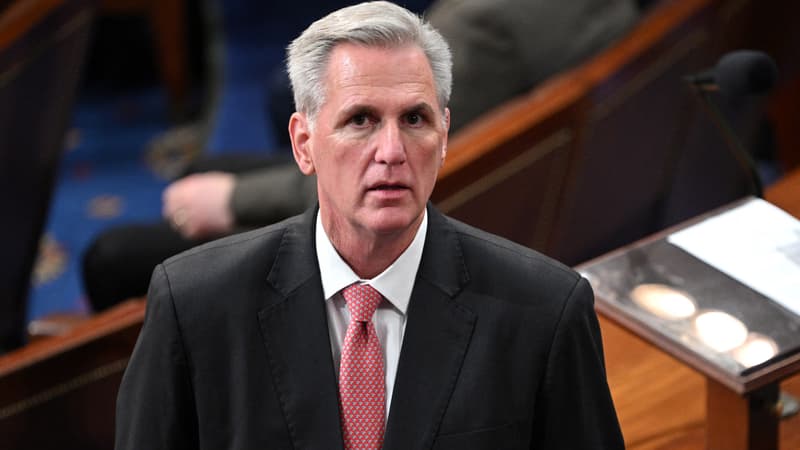With less than a week to go, the US Congress embarks on Tuesday in a race against time to examine the agreement reached between President Joe Biden and Republican leader Kevin McCarthy, which would prevent a default by the United States. .
Returning from a long holiday weekend, elected representatives in the Republican-controlled House of Representatives begin to consider a budget bill resulting from the agreement reached on Saturday to raise the US debt ceiling in exchange for budget cuts.
A vote scheduled for Wednesday in the House of Representatives
A crucial first meeting, that of the House Rules Committee, is scheduled for the afternoon and should give an indication of the state of the art as a fringe of elected conservatives and progressives oppose a compromise reached over the weekend after of marathon negotiations. If all goes well, Kevin McCarthy has scheduled a House vote on Wednesday in plenary. Then it will be the turn of the Senate, with a Democratic majority, to seize it.
Joe Biden, who is running for re-election in 2024 and stakes his political credit in this case, continued to consult far and wide on Monday to sell the deal to his troops, according to a White House official. “It looks good,” he told reporters optimistically. “I’ll never say I have confidence in what Congress will do, but I have a good feeling.” On Sunday night he had invited “strongly” elected officials to adopt this legislation, the result of a compromise he himself negotiated with the Republican opposition.
A raised public debt ceiling until 2025
Time is running out: the US Treasury has set Monday, June 5, as the date by which the US government risks finding itself penniless, unable to pay its debt and its accounts, pensions or salaries of federal employees. Such a disaster scenario would be unprecedented in US history and, according to economists, would have global consequences.
Broadly speaking, the agreement concluded this weekend raises the public debt ceiling of the United States for two years, until after the 2024 presidential elections. This is currently set at $31.4 trillion. Non-defense spending will remain unchanged next year and only increase nominally in 2025. It also envisions a $10 billion cut in funding allocated to fiscal services to modernize and strengthen controls, which was a requirement of the Republicans, as well as the recovery of funds destined to the fight against Covid-19 and that have not yet been spent. The compromise also includes new conditions imposed to qualify for certain entitlements, including food stamps, much to the chagrin of Democrats.
Resistance from some elected officials on both sides
Democratic and Republican leaders say they are confident they will finally muster the necessary votes to pass the text. It was released in detail on Sunday, giving elected officials 72 hours to consult it in depth. But the vote is not certain and the text is the subject of fierce resistance from some elected officials on both sides.
Conservative Republicans have already announced their opposition to the bill, such as Rep. Dan Bishop, who vilified Kevin McCarthy for “getting next to nothing.” Another Republican-elect, Matt Rosendale, spoke of an “insult to the American people.” On the left, progressive elected officials are skeptical, like Ro Khanna. According to him, many Democrats, opposed to budget cuts, “still don’t know” what their vote will be.
Source: BFM TV


